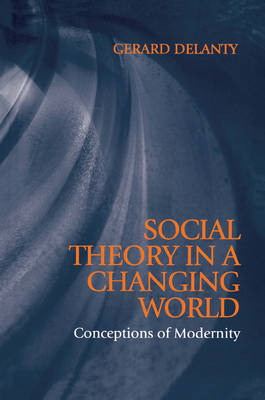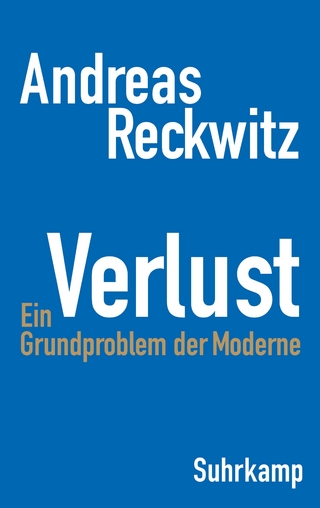
Social Theory in a Changing World
Polity Press (Verlag)
978-0-7456-1917-0 (ISBN)
- Titel ist leider vergriffen;
keine Neuauflage - Artikel merken
This book provides a critical assessment of contemporary social theory for students in the social sciences. Delanty examines the writings of a number of key contemporary thinkers, including Habermas, Foucault, Bauman, Touraine, Giddens and Beck, and provides a clear account of the strengths and limitations of their work. The central theme of the book concerns the nature of modernity and the ways in which contemporary thinkers have understood it. Delanty argues that modernity involves a tension between autonomy and fragmentation. On the one hand, the cultural project of modernity refers to self-assertion and creativity. On the other hand, modernity as a social project tends to destroy its own cultural foundations, as institutional structures become increasingly diffuse and fragmented. Against this backcloth, Delanty explores the work of a range of contemporary social theorists and assesses their contributions to the understanding of modernity. Habermas's work offers a valuable perspective on social change, but Delanty argues that his theory lacks a satisfactory account of the creativity of action.
He traces a shift from the post-structuralist theories of Foucault and Lyotard to the concern with social action which is present in different ways in the work of Bauman, Touraine and Melucci. The text concludes by examining the nature of knowledge and reflexivity in the work of Beck and Giddens, and outlines a framework for a new theory of modernity. This book will appeal to second- and third-year undergraduates, graduates and academics in sociology and social theory, politics, cultural studies and other social sciences.
Gerald Delanty is a Reader in Sociology at the University of Liverpool.
Introduction. 1. Defining Modernity: The Quest for Autonomy. Introduction. Modernity's Three Logics of Development. Integration and Differentiation. Conclusion: The Time-Consciousness of Modernity. 2. The Limits of Modernity: From Autonomy to Fragmentation. Introduction. Rethinking Modernity. Autonomy versus Fragmentation: The Loss of Unity. Beyond the Classical Tradition: Contemporary Theories of the Social. Conclusion: Towards a New Time-Consciousness. 3. Discourse and Democracy: Habermas's Theory of Modernity. Introduction. The Problem of Democracy. The Formation of Habermas's Social Theory. Rescuing Discourse: The Mediation of Democracy and Law. Discursive Democracy in the Global Public Sphere. The Question of Culture and Identity. Conclusion: Culture and Discourse. 4. Cultural Creativity and the Rise of Social Postmodernism: Foucault, Lyotard and Bauman. Introduction. From Deconstructionism to Constructivism. Bauman: Ethics and Postmodernity. Conclusion: Beyond Postmodernism. 5. The Return of Agency: Touraine and Melucci. Introduction. Touraine: From Historicity to the End of the Social. Melucci: Culture, Identity and Change. Conclusion: Reflexivity and Democracy. 6. Reflexive Modernization: Beck and Giddens. Introduction. Beck and the Risk Society. Giddens: Modernity, Reflexivity and Trust. Assessing Reflexive Modernization: The Question of Culture. Conclusion: Reflexivity and Discourse. Conclusion: Knowledge, Democracy and Discursive Institutionalization. Notes. Bibliography. Index.
| Erscheint lt. Verlag | 19.6.1999 |
|---|---|
| Verlagsort | Oxford |
| Sprache | englisch |
| Maße | 152 x 229 mm |
| Gewicht | 471 g |
| Themenwelt | Sozialwissenschaften ► Soziologie |
| ISBN-10 | 0-7456-1917-7 / 0745619177 |
| ISBN-13 | 978-0-7456-1917-0 / 9780745619170 |
| Zustand | Neuware |
| Informationen gemäß Produktsicherheitsverordnung (GPSR) | |
| Haben Sie eine Frage zum Produkt? |
aus dem Bereich


